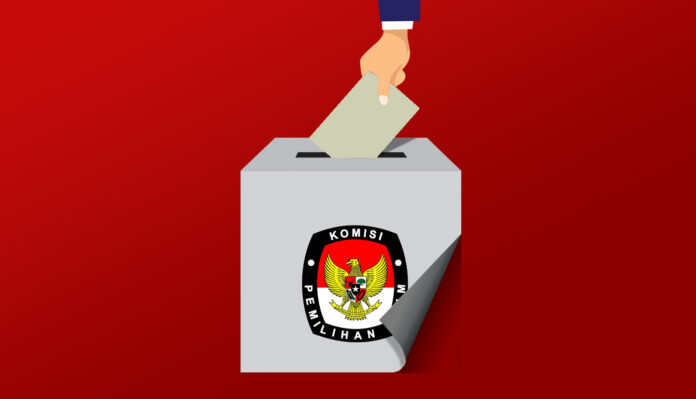The Importance of Joint Commitment to Maintain Post-Regional Election Conduciveness
By: M. Jumadi Ihsan *)
Regional Head Elections (Pilkada) are one of the important elements in Indonesian democracy that often become a barometer for the nation’s political and social stability. In its implementation, Pilkada not only gives rise to the dynamics of competition, but also brings the potential for polarization in society. Therefore, maintaining conduciveness after Pilkada is a shared task that requires the commitment of all elements of the nation, from the government, security forces, community leaders, to individual citizens.
Deputy Minister of Religious Affairs, Father HR Muhammad Syafi’i, expressed his appreciation for the success of the government and the National Police in maintaining stability during the implementation of the Presidential and Regional Elections. He highlighted the “cooling system” strategy implemented by the National Police, namely a humanist approach to reduce the potential for conflict in society. Through a special task force, the National Police ensure that differences in political choices remain within a safe corridor by involving intensive communication with community leaders, religions, and local communities. This step not only prevents friction, but also strengthens the values of tolerance and togetherness.
The real results of this strategy are seen in the atmosphere after the Presidential and Regional Elections which remained conducive despite being marked by sharp political competition. The persuasive approach of the Police was able to instill a sense of security and public trust in state institutions. By involving various parties, such as religious figures and youth, the Police succeeded in creating social harmony without using repressive measures, but rather through dialogue and education.
This success, according to Father Syafi’i, is an important model in maintaining peaceful democracy in the future. He hopes that strategies such as the cooling system can continue to be developed to overcome the challenges of political polarization in Indonesia. With a shared commitment between the government, the Police, and the community, political differences will not be a threat, but a force to strengthen national unity.
President Prabowo is also a central figure in maintaining stability after the election. With political gestures that embrace differences, President Prabowo has succeeded in preventing deeper polarization. An attitude that is not anti-criticism but is still able to unite differences in political views is a real example of how leaders can contribute to social harmony. This step is even considered comparable to the strategies of world leaders such as Roosevelt in the United States. With inclusive policies, the government is able to build joint strength for the progress of the nation.
Not only that, the role of religious figures and community organizations in maintaining harmony cannot be ignored. The chairman of the PGI, Rev. Jacklevyn Manuputty, emphasized the importance of peace education through religious institutions. The church, for example, provides direction to the congregation to remain calm and maintain togetherness even though political choices differ. The Interfaith Harmony Forum (FKUB) in West Kalimantan is also committed to being at the forefront in encouraging reconciliation after the regional elections. This effort is important to ensure that the community refocuses on harmonious and sustainable regional development.
Acting Governor of Papua, Ramses Limbong appealed to the public to continue to maintain security and order after the regional elections. In his statement, Ramses emphasized the importance of respecting the legal process for those who are dissatisfied with the election results. This attitude shows the maturity of Papuan democracy which deserves appreciation. Awareness of the importance of stability is the first step in building a better future for Papua.
Social media is also one aspect that needs attention. Communication expert, Devie Rahmawati, reminded that the high use of mobile phones in Indonesia, especially by the younger generation, has great potential to divide the nation if not properly monitored. Information circulating on social media must be managed wisely so as not to trigger conflict. In this context, the government needs to continue to collaborate with various parties to educate the public about the positive use of social media.
The strategic role of local governments and related institutions is also seen in efforts to maintain conduciveness after the regional elections. In West Kalimantan, for example, the FGD activities initiated by Kesbangpol showed a commitment to continue improving the quality of democracy. This forum provides space for various parties to discuss and find solutions to the challenges faced. By involving organizations such as FKUB, FKDM, and FPK, this FGD is expected to be able to create strategic recommendations that strengthen community harmony.
In a broader context, maintaining conduciveness after the regional elections is not only about managing differences, but also about building trust in democracy. When people feel that their rights are respected and the election process is transparent, stability will be realized by itself. Therefore, the government and all related parties must continue to strive to ensure the integrity of the elections and provide space for all elements to contribute to national development.
A shared commitment to maintaining post-election conduciveness is the key to sustainable democracy. By synergizing, the government, security forces, community leaders, and all citizens can realize Indonesia’s ideals as a strong, harmonious, and advanced nation. Every step taken now will be the foundation for future generations in facing greater challenges. Therefore, maintaining harmony after the elections is not only an individual responsibility, but also a collective mandate that must be upheld.
*) Harmony Literacy Activist from the Forum Nusantara Berdikari
